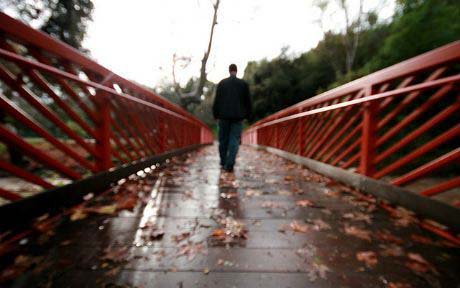Emotional Burnout, Recovery & Living Your Real Life, 1

Emotional burnout can take the wind out of your life’s sails. How do you know if you have it, and what can you do to foster emotional burnout recovery?

Here, we’ll look at what case studies can show us about what burnout really is, and what it has to say to us about our lives, and why we need to respond to it, before it’s too late. In the next post, we’ll look at how best to respond to the signs of encroaching burnout.
Professional, Yes, But Also Profoundly Personal
It would be a mistake to think that burnout is exclusively a professional matter. It can afflict other, non-professional areas of life, just as profoundly.
Many people experience emotional burnout from emotionally demanding caregiver roles — another form of what Profs. Brotherridge and Grandey call “emotional labor”. This can be true of those who have the responsibility for dealing with infirm or elderly parents; those dealing with children facing illness, emotional crises, or extraordinary needs; people living in communities struck by natural disasters; or even those in difficult, emotionally demanding marriages.
Depth case studiess know that emotional burnout doesn’t just happen all at once: you slide into it gradually. So, how do I know if I need to think about emotional burnout recovery? What are the signs?
A Key Element: Exhaustion

Physical and emotional exhaustion are the hallmarks of emotional burnout. We can be sure that you are starting to encounter this when you experience chronic fatigue, which begins with a lack of energy and general tiredness, and leads to a sense of absolute physical and emotional exhaustion and depletion. This is often associated with insomnia, which can start as struggling to fall asleep one or two nights a week, but can lead to a generalized inability to sleep. Impairment of concentration and attention are also characteristic, and can become serious enough that you simply cannot get through the demands of the day. Physical pain, shortness of breath, dizziness and headaches can all be signs, as can increased illness and loss of appetite.
Depression, including feelings of hopelessness and guilt, entrapment and feeling that the world would be better off without you can all be characteristic of emotional burnout. So, too, can serious angry outbursts. Anxiety of varying degrees of intensity can accompany emotional burnout, to the point where it interferes with your ability to work productively and to relate your personal life. If any of these symptoms occur with any intensity, seek professional help right away.
Loss of Enjoyment and Detachment

“The Joyless Winter Day” – Joseph Farquarson
Nearly all emotional burnout recovery will involve dealing with some level of loss of enjoyment around work and social relations, which, at its extreme, can lead to downright aversion. This can be associated with genuine pessimism about oneself and the future. It can also lead to dangerous levels of isolation, detachment and disconnection from others.
Weakness and Powerlessness, Real and Imagined
In the grips of emotional burnout, a person may experience a real loss of productivity, an inability to complete basic tasks, and a generalized sense of being powerless to “climb out from under” the burden. As we saw above with depression, this can lead to a sense of apathy and hopelessness. Not surprisingly the individual often finds that this is accompanied by a growing sense of irritability.
Questions of Vitality, Self and Meaning
From a /a-midlife-transition perspective, what are we to make of emotional burnout and emotional burnout recovery? Are there insights that can help with this very big issue?
In the next post, we’ll look further at emotional burnout recovery, its connection with major life transitions, what it might imply to take the self and its needs seriously, and the importance of all of this for the individual’s journey.
Brian Collinson, Registered Psychotherapist & Jungian Analyst
[cta]
